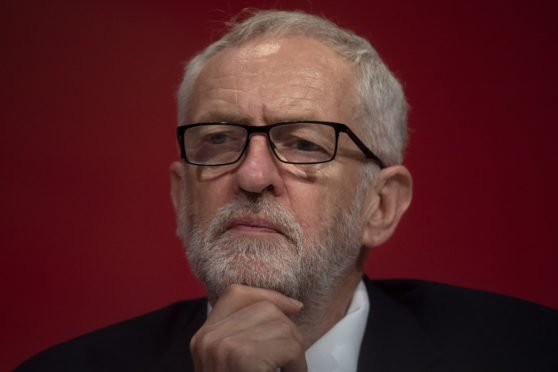Watching this year’s Labour Party conference, one could be forgiven for thinking Britain had been teleported back to the ’70s, and the Blair years never happened.
During the international debate on Monday, there was little sign of any MPs, and most of those at the podium were drawn from the CLP (Constituency Labour Party) or the trade unions.
There was much talk of the oppressed and movements of international resistance, and one young socialist from Liverpool Walton brought the house down when he invoked the twin enemies of the people, the “millionaires and media barons”.
The shambles – when a disputed show of hands for or against “composite 13” (for a new Brexit referendum) was ruled a defeat by the chair – was reminiscent of squabbles of yesteryear.
Long gone is the Blair-imposed discipline, and the professional manipulation of an Alastair Campbell press handler is but a distant memory.
To be fair, the comrades in the audience this year are probably pretty much the same people who have been turning up to Labour events for years.
But circa 1997 to 2015 there was a disconnect between the stereotypical activist and those setting the agenda.
That was the lengthy interlude between Conservative governments, when Labour got its act together sufficiently to be elected – three times.
No chance of that now. The party’s chaos over Brexit, laid bare in the Brighton Pavilion, makes more sense when put in the context of this unreconstructed leftist love-in.
The most eye-catching policies are blueprints for national ruination but could soon become manifesto commitments, with the trade unions allowed 50% of the vote on conference motions.
In Tony Blair’s day, daft interventions from the floor were routinely ignored by the PM’s kitchen cabinet, which having got itself into power quite wanted to stay there.
But that is not the way the Corbyn project works. There is no hint of a strategy for government, or of a coherent campaign to win seats.
Instead, all the old Labour preoccupations and prejudices have resurfaced, to the point of parody.
John McDonnell, the shadow chancellor, announced plans to increase spending on welfare to almost four times the current NHS budget.
He wants to introduce a “universal basic income”, which according to some estimates works out at £504 billion a year.
And the party has pledged to reduce the working week to four days, with no loss of pay, and end the higher retirement age of 67.
Labour also intends to scrap all private schools, “integrating” them into the state school system.
Property and other assets owned by private institutions will be “redistributed democratically and fairly” to state schools under Labour.
Other proposals winning support among the grassroots include getting rid of the Queen (hopefully not literally) and transforming Britain into a republic.
In a YouGov poll commissioned by a new anti-extremist group, 43% of Labour members said they were ashamed of Britain’s history, only one in five would be happy to sing the national anthem, and 62% would abolish the monarchy.
The man behind the survey was former Labour minister Ian Austin, who quit the party earlier this year in protest at its failure to tackle anti-Semitism.
He said Labour had been “poisoned by a culture of extremism and intolerance” and Corbyn was “unfit to lead”.
Another key former party aide, Andrew Fisher, resigned this week and said he had no confidence Corbyn could win an election.
That seems to be a sentiment gaining ground in the more sensible echelons of the Labour movement, where the cult of Jeremy Corbyn is wearing thin.
Is this the beginning of the end of the “party” for Labour, where the grown ups reappear, turn on the lights and send the delinquent tendency packing?
That’s what had to happen more than 20 years ago, with Blair ushering in a new era in British politics and establishing a moderate alternative to almost 20 years of Toryism.
And that is the only hope now, if the increasingly right-wing lurch of the Conservatives is to be beaten at the ballot box.
But on the evidence of four days of conference season insanity, Labour is not there yet.


